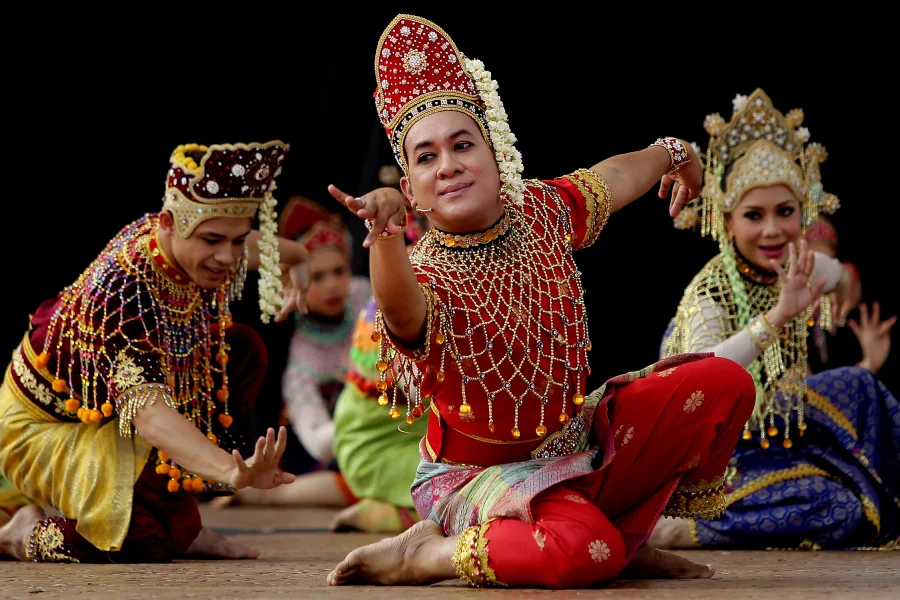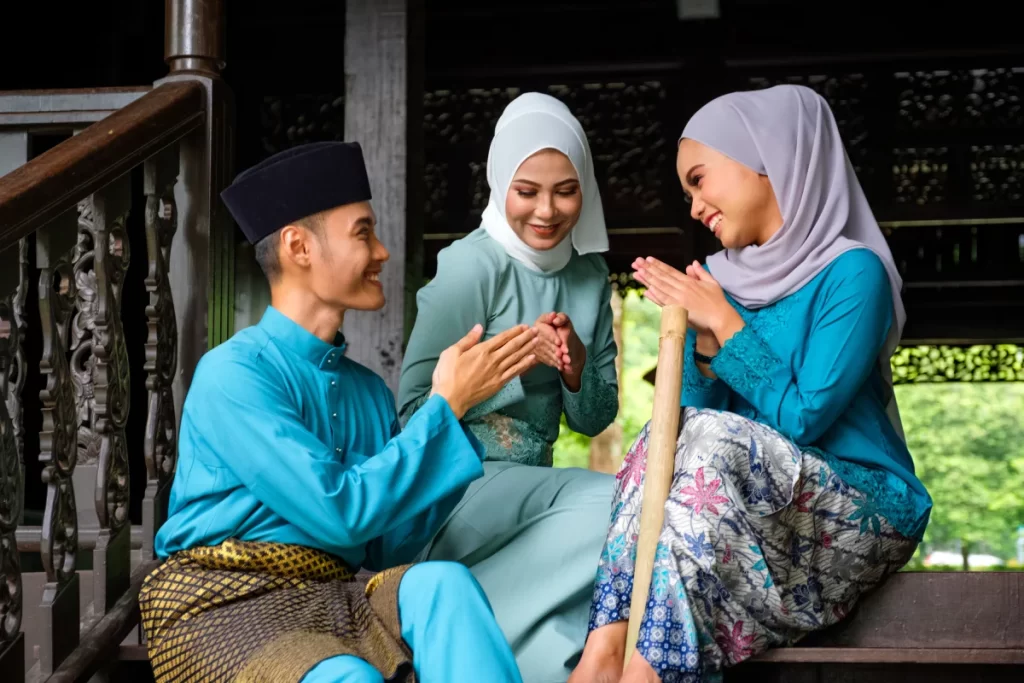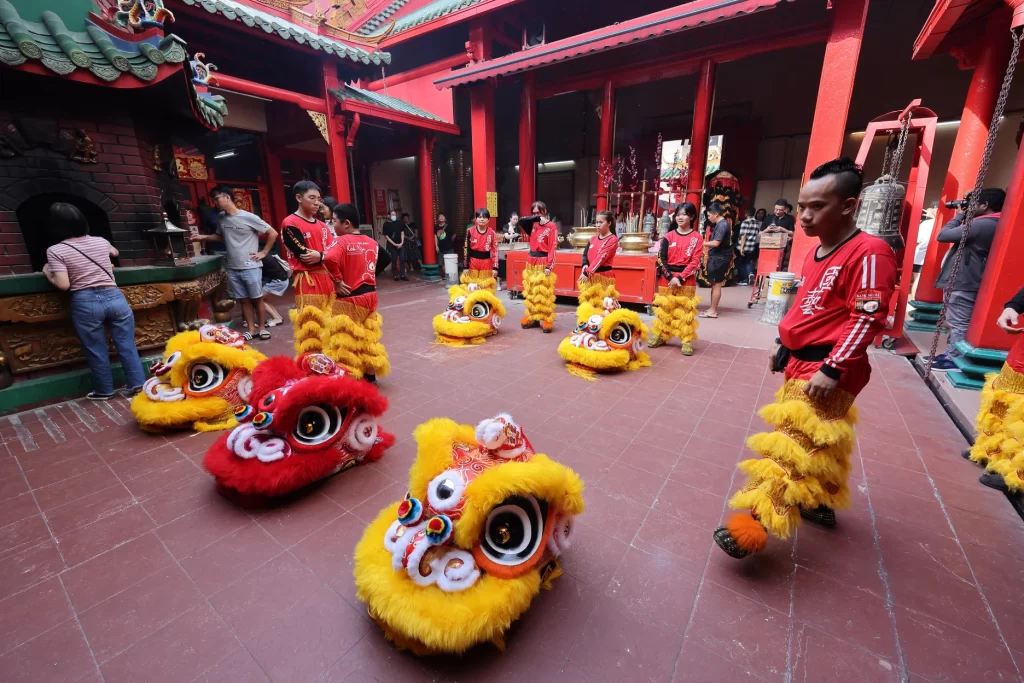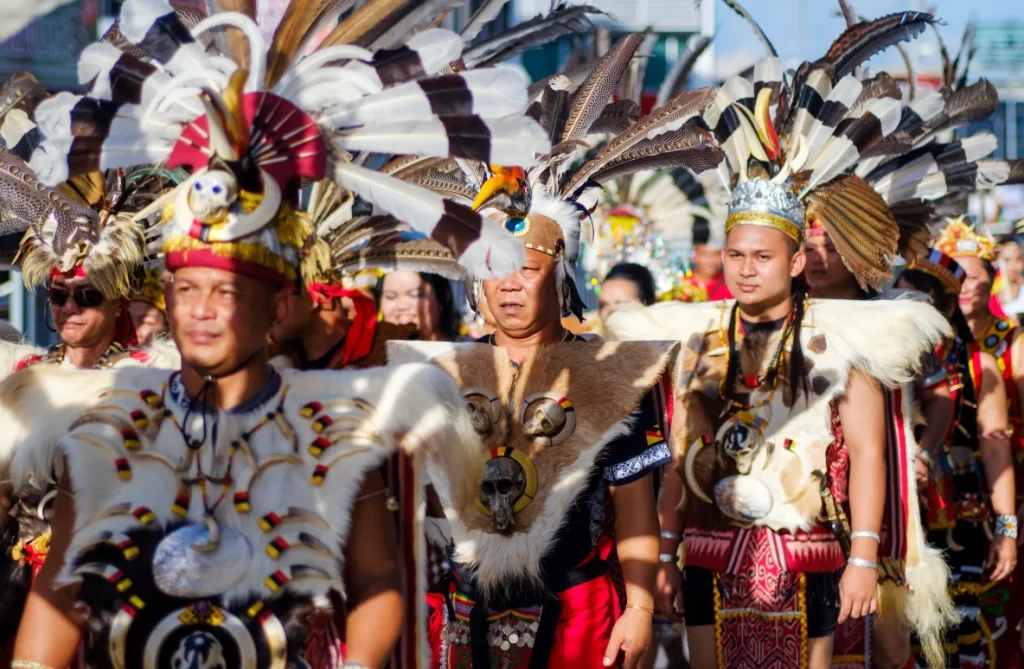
Table of contents
Traveling to Malaysia offers an unparalleled opportunity to immerse yourself in a rich cultural tapestry. Festivals in Malaysia are much more than vibrant photo opportunities; they are profound windows into the soul of this incredibly diverse nation. There are moments when communities come alive, traditions are celebrated with fervour, and the air crackles with a unique energy.
For British visitors, these cultural events offer an unparalleled chance to delve deeper than surface-level tourism, transforming a visit to Malaysia into an unforgettable experience.
This travel guide will share practical ways to experience Malaysia’s cultural festivals respectfully and meaningfully, ensuring your memories are as rich as the traditions themselves.
Key Takeaways
- Witness the spiritual Thaipusam procession at Batu Caves, dazzling Chinese New Year lion dances in Petaling Street, and Hari Raya feasts in Kampung Baru.
- Respectful participation, encompassing dress, greetings, and etiquette, enables visitors to connect meaningfully with local communities.
- Planning ahead with festival dates and booking a hotel early, such as in Travelodge Kuala Lumpur, helps maximize access and comfort during celebrations.
Malaysia’s Rich Festival Calendar

Malaysia’s rich cultural heritage is brilliantly reflected in its festival calendar, showcasing a truly vibrant cultural mosaic. This multi-ethnic, multi-religious nation in Southeast Asia celebrates numerous important occasions.
Major celebrations include:
- Hari Raya Aidilfitri: This joyful festival marks the end of Ramadan, a deeply significant period for the Malay community. It’s a time for family gatherings and open houses, embodying the famous Malaysian hospitality.
- Chinese New Year: A boisterous cultural celebration marked by dragon dances, festive markets, and traditional family reunions.
- Deepavali: Known as the Hindu festival of lights, this luminous festival symbolises the triumph of good over evil.
- Thaipusam: A deeply spiritual Hindu festival and procession, known for its incredible displays of devotion, particularly at Batu Caves.
Gawai & Kaamatan: Harvest festivals and events primarily celebrated in Sarawak and Sabah, respectively, showcasing indigenous Malaysian traditions.
Many of these cultural celebration events warmly welcome visitors, offering a unique glimpse into local culture and Malaysian society. However, engaging with them authentically requires an understanding of cultural etiquette in Malaysia, along with the crucial dos and don’ts.
Respectful Participation Tips
To truly immerse yourself in the local customs and move beyond being a mere spectator, here are some essential tips for cultural sensitivity and proper etiquette in Malaysia:
- Learn Basic Greetings: A simple “Selamat Hari Raya” (for Hari Raya), “Gong Xi Fa Cai” (for Chinese New Year), or “Vanakkam” (for Deepavali) shows immense respect and helps bridge the language in Malaysia. While English is widely spoken, a little Bahasa Malaysia goes a long way.
- Dress Appropriately: For religious or cultural events, it’s crucial to dress modestly. This typically refers to attire that covers the shoulders and knees. When visiting a mosque or temple, specific cultural norms dictate appropriate dress.
- Ask Permission for Photos: Always ask for permission before taking photos of people, especially during religious rituals. A simple nod or “Boleh ambil gambar?” (May I take a photo?) goes a long way. Taking photos without permission can be frowned upon.
- Observe Quietly: When attending ceremonies, observe respectfully and follow the lead of Malaysians. This shows respect for the cultural significance of the event.
- Support Local: Purchase food or crafts from local customs vendors and community-run cultural events to ensure your presence benefits those hosting the celebration.
Where to Experience Festivals in Kuala Lumpur and Beyond
While Malaysia’s diverse festivals are celebrated nationwide, many iconic experiences are readily accessible from the capital, Kuala Lumpur. Staying in a central Kuala Lumpur hotel is particularly advantageous, as it offers convenient access to a multitude of festivals in Malaysia throughout the year.
Here’s a detailed look at some prominent cultural experiences and where to find them:
Thaipusam at Batu Caves
Just a short drive from Kuala Lumpur, the annual Thaipusam at Batu Caves is an unforgettable spectacle of devotion. Thousands of Hindu devotees, often carrying ‘kavadis’ (elaborate decorated frames), embark on a spiritual pilgrimage up the 272 steps to the temple in the Batu Caves. The air is thick with chants and incense, creating a palpable spiritual atmosphere.
Visitors can observe the vibrant processions and intricate rituals, but remember it’s a deeply sacred event, so respect and quiet observation are paramount. This is a unique part of Malaysia’s cultural heritage.
Chinese New Year in Petaling Street

During Chinese New Year, Kuala Lumpur’s Petaling Street and surrounding areas in Chinatown buzz with electrifying energy. The streets come alive with dazzling red lanterns, lively lion and dragon dances believed to ward off evil spirits, and festive markets selling traditional treats and decorations.
Many Chinese families also host “open houses,” welcoming friends and sometimes even curious visitors to share food and well wishes, offering a warm glimpse into their culture and hospitality. You may also find vibrant celebrations in other cities, such as Penang, during this time.
Hari Raya Aidilfitri in Kampung Baru
Hari Raya Aidilfitri marks the end of Ramadan, a joyous occasion celebrated with family and feasting. In areas like Kuala Lumpur’s traditional Malay village, Kampung Baru, you might encounter the unique “open house” tradition. Families prepare vast spreads of traditional Malay dishes like rendang, lemang, and kuih, and warmly invite guests to share in the celebration. It’s a beautiful demonstration of Malaysian hospitality and a wonderful opportunity to experience authentic local customs and cuisine.
Gawai Dayak in Sarawak

Journey to East Malaysia, specifically Sarawak, to experience the vibrant Gawai Dayak, the harvest festival of the Dayak indigenous communities. This is a time of thanksgiving for a bountiful harvest and prayers for prosperity in the year to come. Festivities typically involve traditional music, dance performances (such as the Ngajat), wearing traditional attire, feasting, and the ceremonial consumption of tuak (a type of rice wine). It offers a profound insight into the rich cultural heritage of Sarawak’s indigenous peoples, a vital part of Malaysian culture.
Kaamatan in Sabah
Also in East Malaysia, the Kaamatan festival in Sabah is the harvest festival of the Kadazan-Dusun indigenous communities. Similar to Gawai, it’s a celebration of thanksgiving for the rice harvest.
The festival features traditional costumes, folk dances like the Sumazau, traditional sports, and the crowning of the ‘Unduk Ngadau’ (Harvest Queen) beauty pageant. It’s a lively and colourful cultural celebration that showcases the unique traditions and community spirit of Sabah.
Summary of Key Festival Experiences for Your Trip to Malaysia:
| Festiwal | Primary Location/Experience | Key Highlights |
| Thaipusam | Jaskinie Batu | Spiritual procession, devotional acts, vibrant atmosphere, Hindu festival. |
| Chinese New Year | Petaling Street, Chinatown (Kuala Lumpur) | Lion dances, festive markets, open houses, and traditional food. |
| Hari Raya | Kampung Baru (Kuala Lumpur) | “Open house” tradition, Malay hospitality, traditional feasting (Ramadan end). |
| Gawai | Sarawak (East Malaysia) | Indigenous dances, traditional attire, music, and communal feasting. |
| Kaamatan | Sabah (East Malaysia) | Harvest Thanksgiving, folk dances, traditional sports, and cultural pageants. |
Planning Your Trip Around a Festival
To make the most of your festival experience, planning a trip is key. This will ensure your travel experience is smooth and truly enriching.
- Check Dates in Advance: Festival dates often vary year to year, as many are based on lunar calendars. This is crucial for the best time to visit.
- Book Early: Flights and your Kuala Lumpur hotel should be booked well in advance, as demand for accommodation surges during peak festival periods. Consider securing your stay at a Travelodge Kuala Lumpur property early to ensure a comfortable and convenient base in the heart of Malaysia.
- Prepare for Crowds: Expect large crowds, especially at popular festival locations.
- Anticipate Closures: Be prepared for potential road closures and diversions, which can impact travel times within Kuala Lumpur and other cities like Penang or even to Singapore.
- Allocate Extra Time: Allow extra time for getting between cultural events or attractions, embracing the slower pace that often accompanies these vibrant festivals.
A little foresight ensures a much smoother and more enjoyable cultural immersion. Start planning your unforgettable trip to Malaysia today!
There’s More to Malaysia’s Cultural Festivals
Participating respectfully in Malaysia’s cultural festivals is an enriching cultural experience that transcends typical tourism. It allows you to forge deeper connections, understand local customs, and create truly unforgettable memories.
By planning ahead and choosing a strategically located Kuala Lumpur hotel, such as a Travelodge hotel, you position yourself perfectly to access Malaysia’s vibrant festival scene, transforming your visit to Malaysia into an authentic journey of discovery into Malaysian culture.
Book your stay with Hotele Travelodge Azja today.
Często Zadawane Pytania
How can I make the most of Malaysia’s festivals?
Plan ahead, learn basic greetings, dress appropriately, and join community activities to experience the culture entirely.
Which Kuala Lumpur hotel is best for festival access?
Staying in a central Kuala Lumpur hotel, such as Travelodge, offers easy access to major festival sites and city attractions.
Can I try local food during the festivals?
Absolutely. Festivals are an excellent opportunity to enjoy traditional dishes, from Hari Raya feasts to Chinese New Year treats.
Are Malaysia’s festivals family-friendly?
Yes. Many celebrations include performances, dances, and activities suitable for visitors of all ages.
How can I respectfully interact with locals during festivals?
Learn simple greetings, observe ceremonies quietly, and participate when invited to connect meaningfully with the community.
